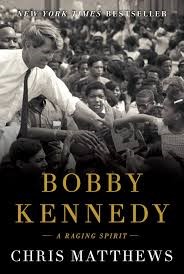
Thoughts from the Desk of Bob Repass…
It should not come as a surprise to anyone that one of the biggest challenges real estate entrepreneurs and note investors face is overcoming fear. But what is fear?
One acronym I have heard that can help interpret what fear is and how it affects us, is FEAR – False Evidence Appearing Real. A natural fear of the unknown. We are simply in a comfort zone and tend to cling to the security of our normal structure or patterns.
Other common fears are the fear of failure, and the fear of not getting things done. When you are dealing with the fear of failure you will face moments when you want to back down because everything inside of you says, “Don’t take the risk.” It is in those moments that your decision to hold back or jump in will determine the defining moments of your life. Pushing through the fear leads us to realizing our potential.
FEAR – Forget Everything and Run – OR – Face Everything and Rise
In today’s crazy, busy world the fear of not getting things done can be a monster. We have way too many distractions and diversions. Don’t focus exclusively on the results you want instead concentrate on the actions you need to take that will get you to those results.
As entrepreneurs, we need to be able to make hard decisions without getting stuck in “paralysis of analysis”—taking too long to choose because of indecision. A lack of decisiveness can cripple any business or investment opportunity. Hard choices are sometimes necessary without much time to reflect. Make the best decision you can based on where you want to go, not where you are, and then move on.
Beat the fear with knowledge. It is common for someone who is afraid of water to take a swimming class. Or even more extreme someone who is afraid of heights to take skydiving lessons. Remember, they don’t throw you in the deep end of the pool or toss you out of a plane on the first day. They spend time learning in the classroom, and that knowledge gives him enormous motivation and confidence. Education is a powerful tool for overcoming your fear.
“One of the other big lessons that I’ve learned, particularly in business, is that you have a responsibility to yourself to learn as much about your business as you can.” – Oprah Winfrey
This time of year I like to take a look at some of the college commencement speeches various business leaders, politicians and yes even celebrities have given. In this month’s “In the Spotlight” column below I want to share an excerpt of one of the best I read this year by Apple’s CEO Tim Cook at Duke University’s graduation ceremony encouraging graduates to “Be Fearless.”

Bob Repass
Managing Director
Stay up to Speed with Eddie
JUST OUTSIDE YOUR COMFORT ZONE IS YOUR GROWING ZONE
by Eddie Speed
No matter how seasoned you are as a note person, or how experienced you are as a real estate investor, we all take our marching orders from the market. Sometimes it tells you to make some tweaks to what you’re doing, and sometimes it tells you to completely reinvent yourself.
Right now, I think it’s telling us to do something in-between.
I guess you could say it’s time to tweakvent yourself.
But I want to tell you the story about a major turning point in my life. I started out to make a tweak, but ended up completely reinventing myself. And even though I wasn’t looking for it, it would make a tremendous change in my business and the whole note industry.
Sometimes, when an opportunity comes along, you make a little wedge in your calendar and shoehorn it in. Then it might grow into a giant that takes over your whole calendar. That’s what’s happened in 1991. Those were good times for the note business, and my company was well established. One of my customers was a seasoned real estate investor and “fix-n-flipper” who was way ahead of his time named Ken D’Angelo, and he became one of the smartest and greatest visionaries in the real estate business. (Speaking of reinventing yourself, before his real estate career he was a trumpet player in a rock and roll band.)
Before I started working with Ken, he had experience with realtor franchises. He had the idea to combine his skillsets to launch the world’s first house-buying fix-n-flip franchise business, and he hadn’t yet proven the scalability of his idea. Let’s say he wasn’t a famous “REI” yet, but in those earliest days I got to be his note expert. Wow!
Most people at the time thought the guy was crazy. But he proved all the naysayers wrong.
To make it work for people to buy his franchises, he wanted to include the world’s first note system as an option, so his franchisees could offer seller financing on the houses they sold. They could make money when they sold their rehabbed houses, plus by offering seller financing they could create quality notes and make more money on the back end by selling the notes. Cha-ching!
Back then, the note business was really active, so there were lots of experienced note guys he could pick from to create his note system. Lots of those guys tried to get the job, but I was the one he chose to write the recipe. I said OK, and squeezed it into my calendar. At the time, I had absolutely no idea how this was going to change my life.
I knew in my head how to create quality notes that could sell for the most money, but it was kind of like the recipe Grandma knows but never wrote down. Back then I had never taught anybody else how to do it. I wasn’t sure how or where to start.
I knew there was no textbook on how to create a note system, so instead of wasting time going to a library or bookstore, I went straight to Walmart. I bought six of their biggest whiteboards, six easels, a giant pack of multi-colored markers, and a bunch of erasers. It took a caravan of carts to haul it all to the checkout line.
I ADMIT: I WAS SCARED
It was on a Saturday that I set up my note system workshop in an empty office of Ken’s headquarters and started transferring stuff from my head to the boards. I really wish we had taken some photos for the historical record; but if we had I guarantee I would have looked scared. I wasn’t sure whether this was going to be a huge success or a gigantic flop. I was so far out of my comfort zone I forgot how to get back to it.
Speaking of looking scared, I can relate to the song COLOR by the young country singer Jamey Johnson. It tells the story of looking at an old black & white photo album with his grandpa. There were pictures of his grandfather as a kid trying to survive the Great Depression, as a young soldier fighting in WW2, on his wedding day, and so on. The chorus is inspired by what his grandpa said and it sums up the story:
“Yeah a picture’s worth a thousand words,
But you can’t see what those shades of gray keep covered,
You should have seen it in color.”
I was up to my neck in completely unchartered waters. Even though I didn’t realize it while I was scribbling chicken scratch all over those whiteboards, I was making history. I was creating a flowchart for a note buying system that was teachable, learnable, repeatable, scalable, ownable, transferable, and profitable – something that had never been done before.
I wish I could say that I cranked it out over the weekend. But the process went on for six months!
It was fun, but exhausting. I think I did more erasing than writing. And I’m still dizzy from the marker fumes!
But the project was not without some turbulence. At the same point in time, I was selling a lot of notes to a big institutional lender called The Associates. I had lunch two or three times a week with the execs who ran the seller finance note buying division of the company. I knew they trusted me completely, and they trusted me enough to confide that they had very little confidence that any old Joe Schmo real estate investor could learn how to create quality notes, or rehab a house properly. They were concerned that they’d be brought poor quality notes on poor quality properties, and their reputation would suffer. They were really worried the notes they bought wouldn’t pay.
They thought the process of creating notes was just far too complicated for the average guy to master, even if their pal Eddie Speed created the system. But they later changed their tune. I would buy the notes created by the franchisees who used my system, then I packaged and sold those notes to The Associates. It took a year or so to get the wheels turning on the whole operation, but The Associates grew from $100million to $250million! It was good for them and great for me.
Ken went on to become super successful, and always told me that I played a major role in getting him there. He even wrote a testimonial in my book Streetwise Seller Financing:

My note system revolutionized the industry in more ways than I could have expected. It brought a scalable system to institutional money. It created a massive market niche that had never existed. It legitimized architect-it-yourself notes, and reinvented the note business. And in the process, I also reinvented myself.
If I had never been asked by Ken D’Angelo to create the system, or been crazy enough to say yes, then I never would have made that trip to Walmart, I never would have transferred what was in my head to those whiteboards and then to paper – and NoteSchool never would have happened.
For me, that experience was a major milestone and turning point. If my life was a movie and you edited out that one scene, it would have had a very different ending.
Unlike most real estate investors, Ken was an innovator. Most real estate investors are copycats, but they copy seller financing from other real estate investors who never learned from an A-level note person. Ken inspired me to be an innovator and an entrepreneur.
I’m not saying I’ve never copied anybody else – I just make it a point to copy the smart people! If you’re a D student, at least have enough sense to copy the homework of the smartest girl in the class. To succeed, you have to surround yourself with smart people and pick their brains. If you’re a D student and you copy off another D student, don’t expect to graduate any time soon.
WE ALL NEED TIME IN THE WATERTOWER
My life can get pretty crazy with teaching seminars, attending masterminds, running my companies, speaking at conventions, writing these awesome blog posts, and so on. That’s why I make it a priority to do something important: I spend time in the water tower.
What does that mean? It means I take time to climb out of the trenches and look things over from a high perspective, way above the fray and commotion. (I call it “time in the water tower” because I grew up in Byram, Mississippi, a country suburb of Jackson, where the tallest building around was the water tower.) Having some peace and quiet allows me to think about where I’ve been, where I am, where I want to go, and how I’m going to get there.
From your view in the water tower, you’re more likely to recognize the major milestones in the past, and see ahead for future opportunities. This is the vantage point where I first realized the full impact of creating the first note system.
For an example of looking forward, an investment partner and I recently bought about a hundred acres of land to bust up into smaller tracts. (I like buying dirt!) We realized that our land would be more marketable if we had better access to a main road nearby. So we contacted the owner of the land next door to see if we could buy about ten acres off the edge of his property. He told us some things that didn’t really register on me at the time, but as I got some water tower time I realized the potential of that information.
This old boy was about 70, and his plot was around 100 acres. It was his family homestead. He was born there in 1938, and so was his father in 1902. But his grandkids lived about four hours away. My radar had picked up things that I needed time to process.
I always recommend you get to know the people you do business with – for several reasons. You get a better feel for what they really want out of the deal, and they prefer working with people they know rather than with strangers.
As I later reflected on what he told us, I realized that my partner and I could make an offer on his entire property and buy it through seller financing. We could bargain with soft terms so the seller could have stable income for the rest of his life, plus move closer to his grandkids. We could double the size of the tract of land we were planning to bust up, and get the original ten acres we needed in the first place. Win/win.
We put a deal together and made the offer, and it was accepted. We bought the property at his asking price and we set the terms with seller financing. We got the land and he got guaranteed long term income. I never would have seen the opportunity if I hadn’t taken a step back and climbed up into the water tower.
What’s your water tower time telling you? Next time you’re in your water tower, I hope you’ll ask yourself these questions:
- Who are the people in your life that challenge you to stretch yourself out of your comfort zone and go to the next level (like Ken D’Angelo challenged me)?
- Is the market telling you to make some tweaks or to reinvent yourself?
- What environment are you putting yourself in to be around smart people you can learn from?
- Who can you bounce your ideas off of to find out if it’s a great idea or just bad pizza?
- What good ideas from other people can you pull together into a great idea?
• Where have you been, where are you now, where do you want to go, and how are you going to get there?
Capital Markets Update
LAYING THE CORNERSTONE OF A COLLEGE FUNDING STRATEGY
By: Ryan Parson
As parent, grandparent, aunt or uncle and you gaze lovingly into eyes of a brand new member of your family, it’s probably hard to imagine him or her heading off to college. Although that day may seem a long way off, it will arrive sooner than you think. In tomorrow’s world, a good college education may be even more critical for success than it is today. To help your child get a head start to a secure future, begin by starting a college savings strategy as early as possible.
Part of that college education actually begins at home. What do you plan to teach your children about money? Will they know the difference between traditional wall-street assets from private investments, like real estate, private equity and private debt before they head to college? Many people I talk to agree that when we attended college, we were not taught about money and wealth and those with kids going through college right now are not finding it to be much different.
So what does that mean? Teaching financial basics and engaging the youngest generation of our families is a critical component to getting them off to a great start financially in addition to the benefits of a formal college education.
For most of us, sending kids to college is a financial priority. College tuition costs keep increasing on a yearly basis with no apparent end in sight, although the pace of the increases has slowed in recent years. Still, with the average cost at private colleges exceeding $42,000 per year (Source: Trends in College Pricing—2014, The College Board), the projected four year cost at a private college for today’s newborn is staggering. These numbers can easily overwhelm you, especially if you are already juggling other financial concerns. Yet, the sooner you start a funding strategy, the better. The longer you delay, the more difficult it may be to reach your funding goal.
Personal Savings are especially important as a source of college funds, since it’s the one area over which you have the most control. While other sources of education funding are also available, it helps to understand what to expect before counting on them. Here are a few worth noting:
- Financial Aid.This usually comes in the form of loans, and rarely covers total college costs. Even if your child qualifies for financial aid based on need, there is no guarantee your chosen college will have sufficient funds to help all who fit that category.
- Scholarships.Many scholarships—both large and small—exist, yet there is no way to predict whether your child will qualify for one, or receive one even if he or she is eligible. Scholarship opportunities are available locally, statewide, and nationwide.
- State-Sponsored Qualified Tuition Programs (529 Plans).Generally, these plans allow you to set aside funds for qualified education expenses on a tax-favored basis.
- Personal Loans.These are usually easily available, although they may prove costly over the long run, due to interest charges. Personal loans also typically require payments to begin and interest to start accruing immediately.
- Future Personal Income.If you haven’t managed to set aside funds by the time your child is ready for college, how will you fund an entire college education out of your income while he or she is attending school? This may prove especially difficult if you will be nearing retirement age at the same time.
- Self-Directed Accounts. Many different types of qualified accounts allow you to take full control of the types of investments you are using to accumulate college savings. Investing in real estate or private placement funds, for example, may be good options to ensure you have saved enough whether you are planning to fund a four year degree or a masters.
It’s important to have a comprehensive wealth strategy plan in place that addresses your college funding objectives. Put time on your side—start your child’s education fund now!
Want to Learn More?
If funding a college education is in your financial future, take a look at this video:
Education Funding Strategy Video
Continued financial success to you!
In The Spotlight
BE FEARLESS…

Here is an excerpt from Apple CEO Tim Cook’s Commencement Address at Duke University on May 13, 2018:
“Now, if you’re anything like I was on graduation day, maybe you’re not feeling so fearless. Maybe you’re thinking about the job you hope to get, or wondering where you’re going to live, or how to repay that student loan. These, I know, are real concerns. I had them, too. But don’t let those worries stop you from making a difference. Fearlessness means taking the first step, even if you don’t know where it will take you. It means being driven by a higher purpose, rather than by applause. It means knowing that you reveal your character when you stand apart, more than when you stand with the crowd. If you step up without fear of failure, if you talk and listen to each other, without fear of rejection, if you act with decency and kindness, even when no one is looking, even if it seems small or inconsequential, trust me, the rest will fall into place. More importantly, you’ll be able to tackle the big things when they come your way.”
Quote of the Month
“Be a self-starter. Do it Now! When you don’t know how to do something start. Beware of paralysis of analysis. Be a person of action.” – Mamie McCullough
This Month’s Poll Question
Connect With Us
Are you on Twitter? If so, be sure to follow us on Twitter @NoteSchool and @ColCapMgmt, if not, why not?


 I have always been a history buff. I have been fascinated and intrigued by a few things in particular. The Kennedy family and the late 1960’s especially 1968 and 1969. That’s why I found the book Bobby Kennedy: A Raging Spirit by Chris Matthews so engaging. Last month marked the 50th anniversary of the death of Robert F. Kennedy. Reading this book results in reflecting on how different things would have been if that tragic event had not occurred. Our nation is still struggling with a lot of the same issues as we faced back in the late 1960’s. Maybe things would have been different? My favorite quote by RFK is “There are those who look at things the way they are, and ask why… I dream of things that never were, and ask why not?” This is a great biography to add to your reading list this summer.
I have always been a history buff. I have been fascinated and intrigued by a few things in particular. The Kennedy family and the late 1960’s especially 1968 and 1969. That’s why I found the book Bobby Kennedy: A Raging Spirit by Chris Matthews so engaging. Last month marked the 50th anniversary of the death of Robert F. Kennedy. Reading this book results in reflecting on how different things would have been if that tragic event had not occurred. Our nation is still struggling with a lot of the same issues as we faced back in the late 1960’s. Maybe things would have been different? My favorite quote by RFK is “There are those who look at things the way they are, and ask why… I dream of things that never were, and ask why not?” This is a great biography to add to your reading list this summer.